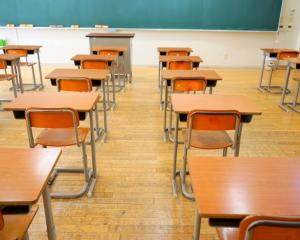An experiment in which Maori and Pacific Island children studied maths in groups has produced "remarkable" results, a Massey education lecturer says.
Dr Bobbie Hunter spent the last six months studying year seven and eight students from four schools in Waitakere and Manukau to see whether their attitude and performance improved when working in groups.
The teacher was to act only as a guide, while the group was responsible for ensuring each member contributed and understood the maths problem at hand.
Dr Hunter said the results were "remarkable with improved grades and levels of understanding".
"(The students) tell me it's harder and more challenging, but it's more fun. They really enjoy it now."
Her findings matched those of American professor Marta Civil who conducted similar experiments with Hispanic and Native American pupils.
"We have these stereotypes about different cultures and we assume there is only one way of learning for everyone," Prof Civil said.
"A lot of students have languages and cultures other than English, and the idea is to find culturally relevant ways to engage them in learning."
Prof Civil was in Wellington for the Mathematics Education Research Group Australasia conference, hosted by Massey University.











